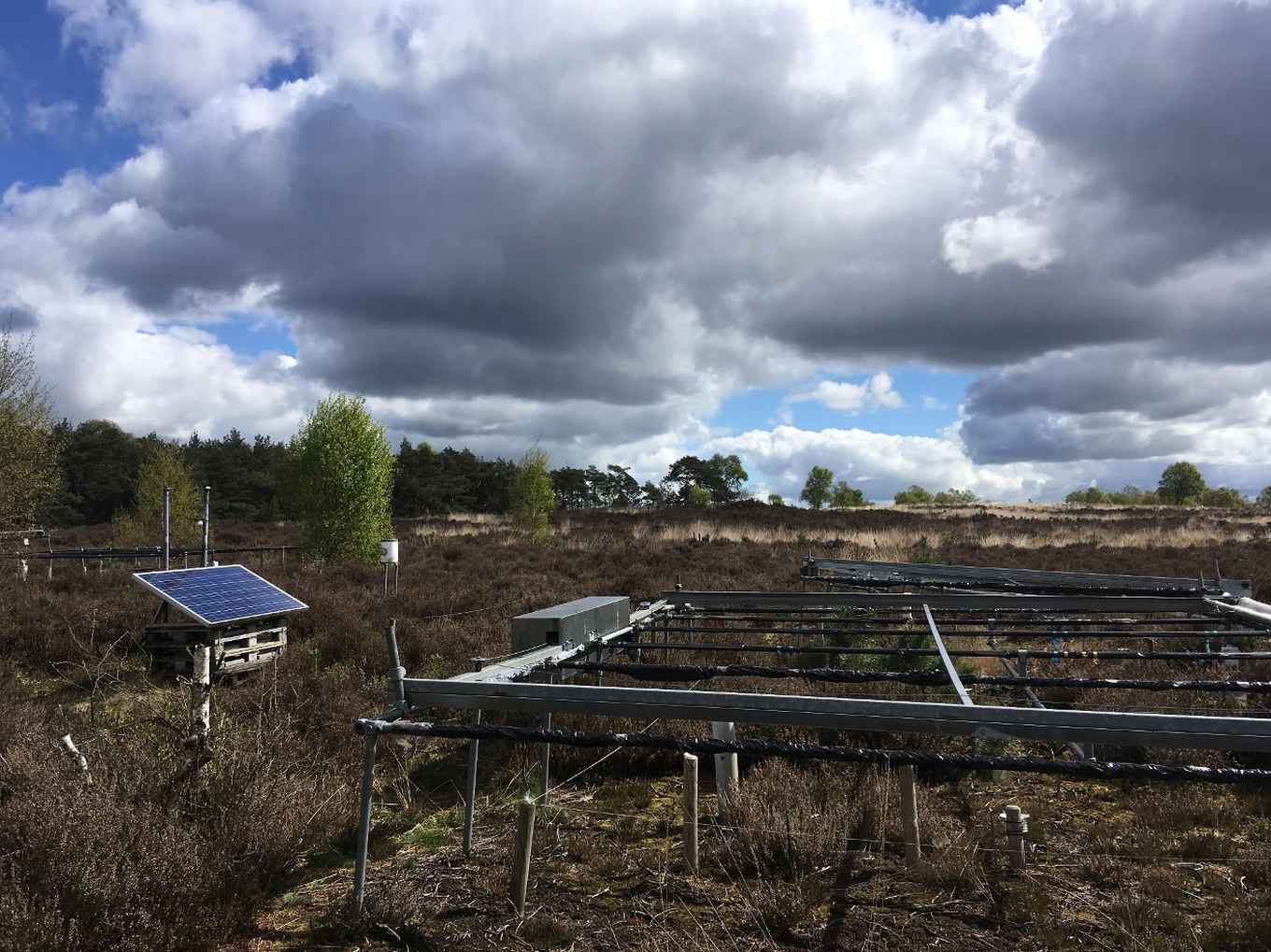Historical climate important for soil responses to future climate change
5 December 2018

The experiment was performed with soils from a heathland on the Veluwe, which has been subjected to 18 years of experimental summer drought. The international research team investigated how long-term experimental field drought influences microbial tolerance to low moisture levels and the ability to recover after soils are rewetted.
Carbon loss from soils
Evy de Nijs is first author of the study, and performed this research as part of her BSc thesis: ‘Climate change will alter precipitation patterns with consequences for soil carbon cycling. Therefore, an understanding of how fluctuating soil moisture affects microbial processes is critical to predict responses to future global change. Our study combined insights on the long-term adaptation capacities of microbial communities with their short-term adaption potential to perturbation.’
‘Wetting a soil after drought always results in an outburst of activity of bacteria, fungi, and other creatures in a soil,’ explains Albert Tietema, researcher at the University of Amsterdam, who is responsible for the long-term climate change experiment. ‘The soil life starts breaking down organic matter present in the soil, primarily to grow and reproduce, but they also release part of the organic matter as carbon dioxide’.
Soil life adaptation
According to the study, microorganisms that have been subjected to long-term drought find it easier than other microbes to recover when moisture in the soil increases again. ‘Our results show that the historical climate will affect how microorganisms respond and contribute to climate change in the future. Bacteria adapted to drought could slow the rate of carbon loss from soils’, explains Lettice Hicks, biologist at Lund University.
If the soil organisms are adapted to regularly occurring drought, which happened in this experiment, they will recover faster, resulting in less production of carbon dioxide. ‘Our findings imply that microbial communities can adapt to changing climatic conditions and that this might slow down the rate of carbon loss from soils,’ concludes Evy de Nijs.
Publication details
Evy A. de Nijs et al. (2018). Soil microbial moisture dependences and responses to drying-rewetting: the legacy of 18 years drought. Global Change Biology. https://doi.org/10.1111/gcb.14508